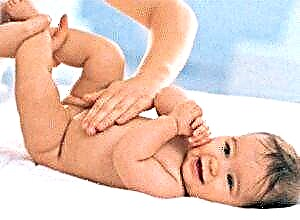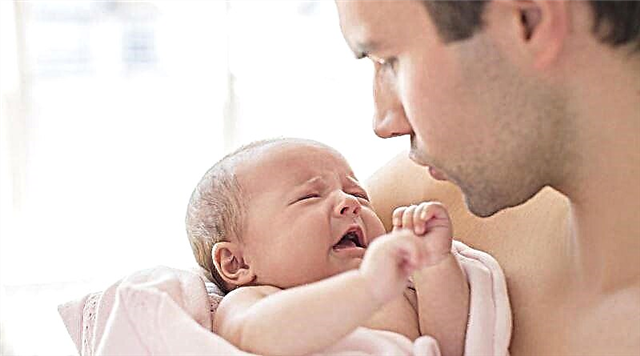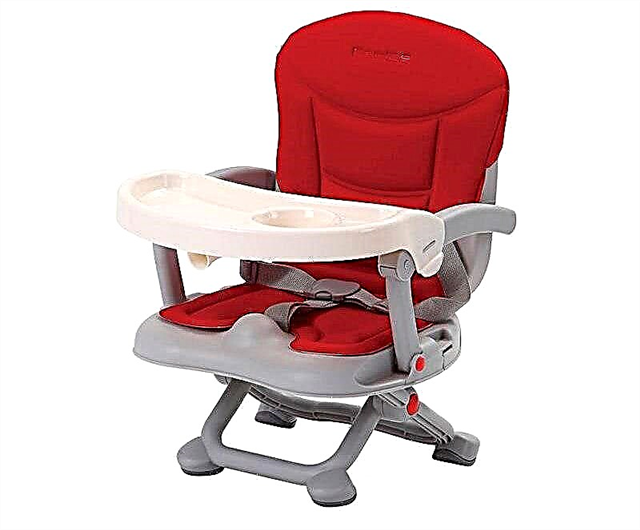
Nurofen is one of the popular anti-inflammatory drugs and is often taken for a variety of pathological conditions, including fever and pain in various locations. It is more convenient for adults to use such a medication in tablets, but for babies, candles and a suspension are called more suitable options. That is why Nurofen, produced in such forms, has a mark on the packaging “for children”.
Nurofen in rectal suppositories was developed specifically for the smallest children. This drug is easy to use, even in infants, since it eliminates the need to swallow syrup or tablets. Also, suppositories are convenient for vomiting and for patients who cannot take medicine by mouth. When are they prescribed for babies, in what dosage they are used and what can they replace if the drug does not fit?

Release form
Nurofen in candles is sold in a cardboard box, inside of which there are two aluminum blisters containing 5 suppositories each. The medication released from packaging has a white color and an elongated shape. Such a candle has a smooth surface, and inside there may be a small depression or an air rod.


Composition
Each Nurofen suppository contains ibuprofen as the main component, which provides such a medicine with its therapeutic effect. The amount of this substance in one suppository is 60 mg. In addition to it, there are only two types of solid fat in the composition of the medicine, thanks to which the suppositories keep their shape, are easily inserted into the anus and quickly dissolve inside the intestine. There are no other chemicals in this Nurofen form.

Operating principle
Since Nurofen is one of the non-steroidal anti-inflammatory drugs, he noted the therapeutic effects characteristic of a group of such drugs:
- Analgesic.
- Antipyretic.
- Anti-inflammatory.

All of them are due to the influence of the active substance of suppositories on the synthesis of prostaglandins. This name is carried by mediators formed in the human body during a temperature reaction, pain or an inflammatory process. Since ibuprofen is able to block cyclooxygenases of the first and second types (it is these enzymes that "direct" the formation of prostaglandins), this leads to inhibition of prostaglandin synthesis, as a result of which the pain response, fever or inflammation decreases. It should be noted that with pain syndrome, the effect of Nurofen is more pronounced if the cause of pain is inflammation.
After absorption from the intestine, ibuprofen from the suppository enters the bloodstream, where it forms compounds with plasma proteins. Then the active ingredient is transferred to different tissues, where it has its effect up to 8 hours. Ibuprofen conversions occur in the liver, therefore, the pathologies of this organ affect the treatment with Nurofen, as well as kidney diseases, because the drug is excreted from the child's body with urine.

Nurofen in suppositories often acts 20-30 minutes after administration, since the absorption time of the drug is about 15 minutes.
Indications
Nurofen in candles is most in demand as an antipyretic drug when the baby has an inflammatory or infectious disease or other pathological condition in which the body temperature has increased. The medicine is prescribed:
- Kids with ARVI.
- Children with the flu.
- Infants with acute otitis media.
- Patients with various childhood infections (scarlet fever, measles and others).
- Children with intestinal infection.
- Babies with other inflammatory diseases.
- Babies who have been vaccinated (if the temperature rises in response to vaccination).
- Children with teething temperature.
Children's Nurofen is no less popular with pain syndrome, which in terms of the intensity of sensations can be both weak and moderate. Suppositories are used:
- For sore throat.
- For toothache.
- With painful sensations in the joints.
- For headaches.
- For pain in the ear, such as caused by acute otitis media.
- With sprains.
- With bruises.
- For postoperative pain.
- For muscle pain.
- With bone fractures.
- With neuralgia.


At what age is it assigned to children?
According to the instructions Nurofen, which is produced in the form of suppositories, is used from 3 months of age. They are also not prescribed for children over two years old, since for a sufficient therapeutic effect, two-year-old patients and older need a higher dosage of ibuprofen, which is usually obtained from a suspension.

Babies under three months old are not prescribed such candles.
When are suppositories used for fever?
Since the most common reason for using Nurofen in babies is a fever, parents should know in which cases treatment with suppositories is justified. If we talk about numbers, then for a child 2-24 months old, an indicator on a thermometer that requires the use of an antipyretic is called + 39C. However, there are situations when the temperature should be "knocked down" and at a lower figure:
- If there is a high risk of seizures (febrile). It is suggested by attacks of such seizures in the past or some kind of neurological pathology in an infant.
- If the child has serious diseases of the cardiovascular system.
- If the crumbs endure high temperatures very hard.
- If fever is triggered by overheating.
- If vaccination is the cause of the high temperature.

Contraindications
Nurofen suppositories are not used:
- If the baby weighs less than 6 kilograms.
- If the child has previously had an allergic reaction while being treated with any anti-inflammatory drugs with a non-steroidal structure.
- If the baby has an erosive or ulcerative lesion of the walls of the digestive tract, including with bleeding.
- If the child suffers from any serious progressive kidney disease.
- If the patient has active liver disease or has developed severe liver failure.
- If the baby's blood test shows hyperkalemia or clotting disorders.
- If the baby has developed heart failure and is in the stage of decompensation.
- If the baby is diagnosed with proctitis.
- If the examination showed the presence of intracranial hemorrhage.
- If the baby has severe abdominal pain.

In addition, the annotation also noted a lot of pathologies in which treatment should be careful. These include systemic lupus erythematosus, dehydration, arterial hypertension, anemia, diabetes mellitus and other diseases, therefore, for any health problems of the toddler, Nurofen can be used only under medical supervision.
Side effects
Sometimes, on the use of Nurofen suppositories, a child may have a negative reaction in the form:
- Nausea.
- Edema, dermatosis, erythema, urticaria, or other allergic reaction.
- Exacerbations of bronchial asthma.
- Abdominal pain.
- Headaches.
A more rare, but possible negative consequence of the use of suppositories is a violation of hematopoiesis, which is manifested by a decrease in the number of erythrocytes in the blood, a decrease in the number of leukocytes, thrombocytopenia, a decrease in the number of granulocytes, and so on. Clinically, this side effect of Nurofen looks like lethargy and weakness, the appearance of bleeding (for example, from the nose) and bruising, complaints of sore throat, ulceration in the mouth and other signs.
Occasionally, babies after using the suppository have dyspepsia, which is manifested by flatulence, constipation, bouts of vomiting, loose stools (diarrhea). In isolated cases, the child's body may react to Nurofen with an anaphylactic reaction, the appearance of a stomach ulcer, bloody vomiting or gastric bleeding, the development of ulcerative stomatitis, impaired liver function, acute renal failure, peripheral edema, increased blood pressure and other ailments.


If the child, after the first use of the suppository, has at least one of these side symptoms, the treatment should be discontinued and at the same time contact the pediatrician so that he can prescribe another therapy.
Instructions for use
Nurofen in suppositories is used only rectally, and the dosage of the drug is determined taking into account several factors, among which the most significant are the age and body weight of the small patient. The drug is gently inserted into the anus and pushed with the index finger to the level of the middle of the 2nd phalanx.
A single dose at the age of three months to two years is one suppository (60 mg). Infants 3-9 months old with a weight of 6000 g to 8000 g can be administered three times a day, and the maximum dosage for this age is 180 mg. For babies over 9 months to two years of age, whose body weight is 8-12 kilograms, suppositories can be administered four times, since 240 mg is considered the maximum ibuprofen per day at this age.


The intervals between the use of candles should be from 6 to 8 hours. It is advisable to insert the drug after a bowel movement. If the child went to the toilet after the introduction of the suppository, and the candle has not yet had time to dissolve (less than 15 minutes have passed), the medicine can be reused. To make sure that the medication has not been absorbed, you can wait about 30 minutes - if the temperature does not begin to "drop", you can put another candle.
The duration of treatment for febrile syndrome with ARVI, influenza and other infections should not exceed three days, and for pain, the medicine is given up to 5 days. If the baby has 3-5 months during the first 24 hours after the application of Nurofen, no improvement is noted, you should immediately notify the doctor about it. For children older than 6 months, observation is carried out for 3 days. If during this period the condition has not improved, the symptoms do not disappear or worsen, immediate consultation with a doctor is required.
If Nurofen in candles is assigned to a child with a temperature reaction to vaccination, then one candle is administered to the baby once. For toddlers older than a year, if necessary, after 6-8 hours, it is permissible to introduce another suppository. The maximum amount of medication for a post-immunization rise in temperature in children over a year old is called 2 suppositories, which corresponds to 120 mg of ibuprofen in 24 hours.

Overdose
A significant excess of the dose of ibuprofen can cause nausea, tinnitus, abdominal pain and other symptoms, but when using suppositories, overdose practically does not occur, since it is not possible to inject many suppositories into the rectum at once. It only happens if you use the medication more often than every 6-8 hours.
In such a situation, if you feel unwell, you should consult a doctor.

Interaction with other drugs
Nurofen in suppositories should not be used with acetylsalicylic acid, thrombolytic drugs, diuretics, nimesulide, antiplatelet agents, paracetamol, zidovudine, cyclosporine, cardiac glycosides and many other medicines. Most of them, when combined with ibuprofen, increase the risk of adverse reactions to treatment, for example, have a nephrotoxic effect.
Terms of sale
Nurofen rectal suppositories can be freely purchased at any pharmacy, as it is an over-the-counter medicine. For a pack of ten suppositories, you need to pay from 90 to 110 rubles.
Storage conditions and shelf life
So that the medication does not lose its therapeutic effect and helps the baby with fever, the candles should be kept in a dry place that will be hidden from children. It is not required to put the medicine in the refrigerator, because the annotation indicates that the storage temperature allows heating up to +25 degrees. If the packaging of the candles is damaged or the permissible shelf life (2 years from the date of production) has expired, such Nurofen should be thrown away.

Reviews
You can see many good reviews about the treatment with Nurofen suppositories. The medicine is especially in demand among mothers of infants and toddlers with a tendency to allergies due to its convenient form and the absence of any harmful chemical compounds. Among the advantages of this option, Nurofen is also called its fast and long-term therapeutic effect, when compared with a suspension.
According to parents, Adverse reactions to suppositories are rare. If you use the medicine for a short period and in the dose prescribed by the doctor, most babies tolerate the medicine normally.
As for the price, some mothers call it acceptable, while others call it a little overpriced.


Analogs
A substitute for Nurofen suppositories can be another drug with the same effect, produced in candles, for example:
- Ibuprofen. This medication includes the same active substance as Nurofen and in the same dosage (60 mg in one candle). It can be used for fever or pain in babies over 3 months old.
- Children's Panadol. The action of this medication in suppositories is provided by paracetamol. The medication with a dosage of 125 mg is used in infants aged 6 to 18 months.
- Tsefekon D. These suppositories are also made on the basis of paracetamol, but can be used in childhood from 1 month, since the amount of the active ingredient in one candle is 50 mg.
- Efferalgan. This is another antipyretic drug in suppositories containing paracetamol. In a dosage of 80 mg, it is prescribed for babies 3-5 months with a weight of 6-8 kg, in a dose of 150 mg - for children over six months, but under 3 years. In addition, Efferalgan suppositories can contain 300 mg of paracetamol in each suppository. This medication is used in children 3-10 years old, for example, if the child has vomiting, which interferes with giving syrup.
- Voltaren. Such a medication containing diclofenac sodium at a dose of 25 mg in each suppository is used at any age. It is usually prescribed for severe pain or inflammation, and with a temperature reaction, such suppositories are used when there are no other antipyretic drugs at hand.
- Analgin. These suppositories based on metamizole sodium can be used in children over 3 months of age, but for infants up to a year, such a medication is prescribed with caution. Like Voltaren, such Analgin is used only in the absence of means that are safer for the baby.
It is also important to note that Nurofen or any of its analogs are symptomatic drugs, that is, they affect only certain symptoms of the disease, for example, they help to eliminate pain in the ear and reduce the temperature of a child with otitis media. At the same time, such medicines do not affect the cause of the disease (pathogenic bacteria, viruses and other factors), therefore, it is not worth giving them without a medical examination.
For fever or severe pain, it is best to see a pediatrician. The doctor examines the baby and makes a diagnosis, after which he will prescribe him not only an antipyretic / pain relieving medicine, but also treatment aimed at the cause, for example, an antibiotic if the baby has developed purulent tonsillitis.
Inserting candles to a baby without the consent of a pediatrician can be dangerous to the health of the little one.




